News Archive
Research
-
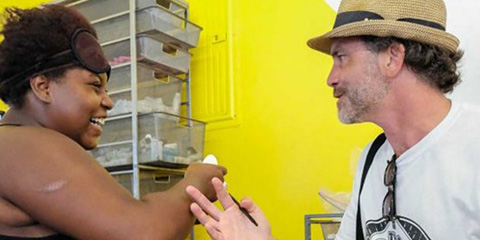
USC’s Eric Rice remembers heading to the Venice boardwalk to find Jacob Buhl.
Rice was going to ask Buhl, who is 25 and homeless, if he wanted to help him with his research, educating other homeless youth about HIV. It was for a pilot study he was doing on HIV education in Los Angeles. Homeless youth would be trained as educators and get the word out to their friends.
-
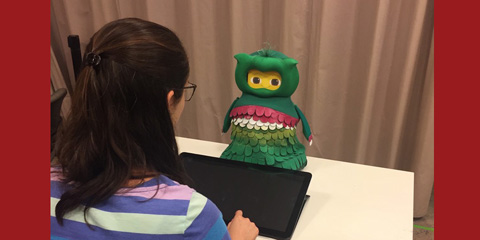
Consumers can now interact with artificially intelligent machines in their homes through Google Home and Amazon Echo, which serve as personal assistants that answer questions, tell jokes and play music, but there is a potential for deeper human-machine connections.
A USC project funded by a grant from the National Science Foundation is exploring how robots can provide companionship and support intergenerational interactions between older adults and other family members in the same house.
-
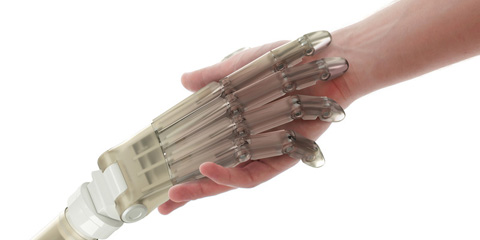
The USC Center for Artificial Intelligence in Society (CAIS)—a joint venture of the USC Suzanne Dworak-Peck School of Social Work and USC Viterbi School of Engineering—will host its first Visiting Fellows Program this summer focused on employing AI to help solve complex societal problems.
-
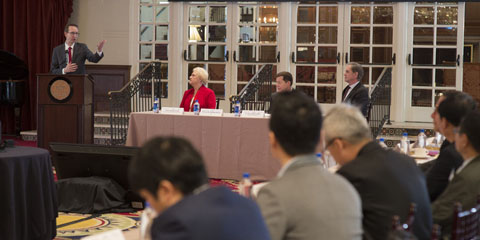
Despite the many cultural and societal differences among nations of the Pacific Rim, they share at least one major commonality: the pressing need to support and enhance the health and well-being of military veterans and their families.
During a two-day symposium hosted by USC, leaders from universities throughout the region focused on strategies to improve policies and practices affecting men and women who served in the armed forces, particularly regarding health, housing, education and employment.
-
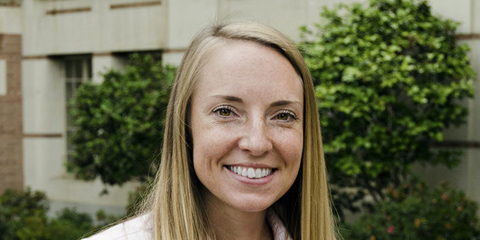
One year, Kim Brimhall would be a dynamo on the softball field, cracking nearly every pitch sent her way and hurtling around the diamond making defensive plays.
The next year, she’d be a dud, logging strikeout after strikeout and dropping easy catches.
Although only 8 or 9 years old at the time, she quickly connected the dots. Each year, she had a different coach.
“I realized leadership made a big difference in terms of how well I played and how much I felt included,” she said. “If I felt like I belonged, I tried harder and played better.”
-

Shopping for healthy and wholesome food can be a challenge.
Sugary cereals and candy gleam in colorful packaging. Prominent displays of cakes and tasty treats abound. Initial intentions to stick to a list of nutritious items can quickly evaporate, especially when shopping on an empty stomach.
-
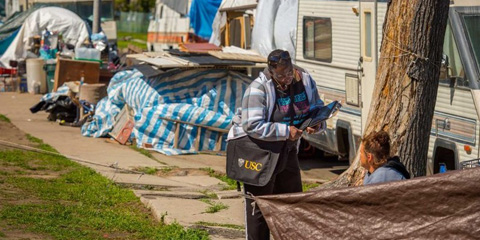
The number of homeless people in the Los Angeles area has increased 23 percent to 57,794 since the 2016 count, according to the latest data analyzed by USC researchers for the Los Angeles Homeless Services Authority.
The results of the latest homeless count were released May 31 by LAHSA officials in coordination with elected officials, including LA Mayor Eric Garcetti and LA County Supervisor Mark Ridley-Thomas.
“There is no sugarcoating this bad news: Our count is up,” Garcetti said.
-

Most service members leaving the military and returning to the San Francisco Bay Area aren’t prepared for the transition home and have a range of needs that can’t be addressed by a single organization, according to a new study from the USC Suzanne Dworak-Peck School of Social Work.
-

Four of USC’s leading experts on aging convened on April 23 for the Los Angeles Times Festival of Books panel “Living Long or Living Well: Can We Do Both?”
Moderated by Pinchas Cohen, dean of the USC Davis School of Gerontology, the panel featured USC professors from multiple schools for an interdisciplinary conversation about healthy aging.
-

A population that has received far too little attention from researchers despite facing serious physical, emotional and social issues is finally emerging from the shadows thanks to a new initiative at the USC Suzanne Dworak-Peck School of Social Work.